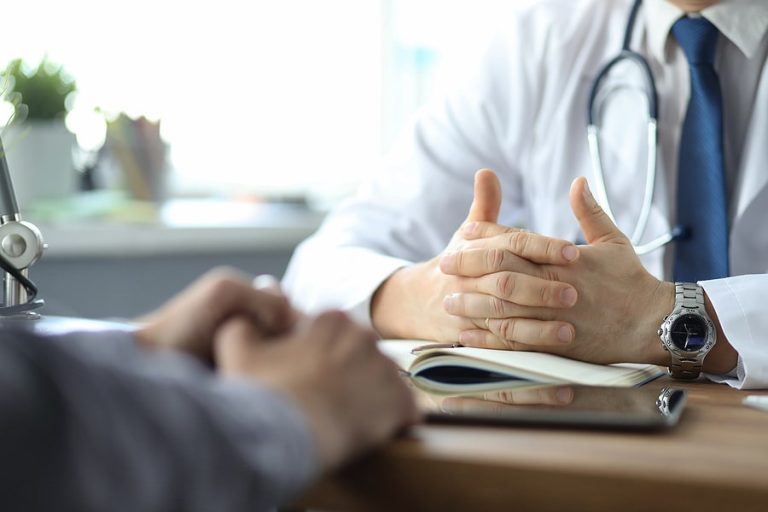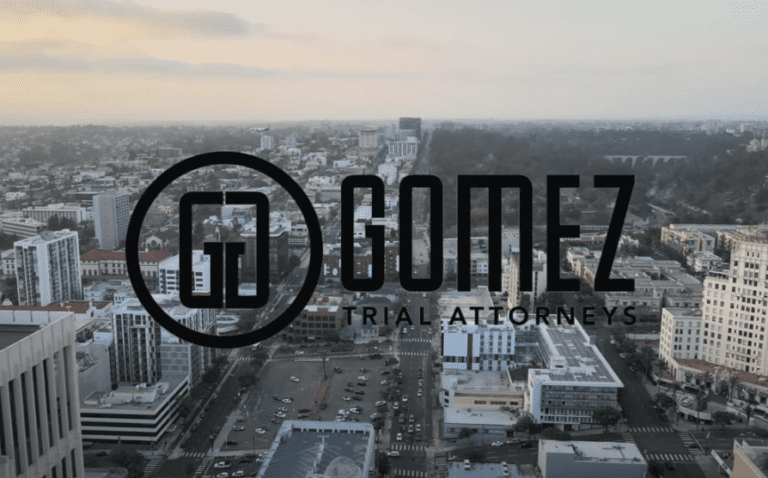
The law gives little guidance in determining the amount of financial compensation for pain and suffering. Generally, there are no concrete standards for determining monetary awards. Courts instruct juries to be dispassionate, though it is not uncommon for a decision to be based on emotion.
Experience gives a personal injury attorney the skills needed to illustrate the impact of pain and suffering in a compensation claim for a personal injury. The severity of the injury comes into play more than the cause in evaluating the monetary value of intangible injuries.
Personal injury lawyers strive to use tangible evidence to show the reality of long-term complications of life after a catastrophic accident. Personal injury attorneys’ experience seeking pain and suffering makes them particularly well suited to implement evidence showing the impact on a victim’s life. During their instructions to a jury, a judge will reiterate the importance of listening carefully to attorneys’ statements and witnesses giving testimony.
A personal injury attorney will tell your story, focusing on the complexities of your non-economic losses and trying to evoke empathy.
The law in California gives accident victims a right to ask for money for non-monetary losses such as:
- Pain and suffering
- Mental anguish
- Emotional upheaval
- Loss of enjoyment of life
- Loss of companionship
- Embarrassment
What Matters Most in Calculating Financial Recovery?
Showing what life is like now due to the accident is important to prove all that a victim has lost. The seriousness of the injury, the documented evidence, and the long-term complications with life after the accident are three things a personal injury lawyer will likely reference in calculating non-economic losses.
#1. Medical Records
Medical records are definitive documents containing evidence of the effect a victim’s injuries have had on their life.
When negotiating an insurance claim settlement, an attorney will scrutinize the record for details such as:
- Diagnosis and prognosis for recovery
- Expected course of treatment
- Expected length of treatment
- The risks and benefits of recommended treatment
- The challenges of recovery
A comprehensive overview of the patient’s medical history will verify, or dispute, pre-existing conditions, patient’s activity level before the incident, and personal lifestyles such as exercise, diet, alcohol intake, smoking, and drug use/abuse. Progress notes include daily changes to treatment, observations concerning the patient’s mental condition, pain level, consulting doctor’s reports, and lab test results.
Physician’s orders will show:
- Testing, procedures, and surgeries
- Prescription medications
- Medical supplies and at-home equipment needs
#2. The Benefit of a Personal Journal
Suffering can result from the emotional distress of living with severe injuries. Diminished quality of life frequently leads to depression and affects a person’s overall general health. A personal journal, or diary, can be used as a central component of a personal injury claim. A lawyer may advise the injured party and possibly family members to keep a journal
This documentation, updated daily if applicable, can include:
- When and where physical pain occurred
- What, if any, everyday activities you missed due to the pain
- Accounts of insomnia
- Any disruption to daily routine or close relationships
- Any concerns about the future
- Updates and changes to medications
- Details of all medical appointments
#3. Photographs, Videos, and Voice Recordings
Pictures are powerful. We all tend to remember things that evoke an emotional reaction, so personal injury lawyers gather photographic evidence in preparation for settlement negotiations. These often include before and after pictures of the accident victim, x-ray images of fractured bones, and photos of any implanted rods and screws necessary for recovery. Lawyers may ask medical expert witnesses to bring samples of the hardware and instruments used in surgery to demonstrate a procedure for a judge and jury.
Photos and videos of previous activities are useful in personal injury cases resulting in disability. A video can be compelling proof of a previously active lifestyle. Injuries to the spine or legs can mean a permanent end to a victim’s favorite sport or leisure activity. These lifestyle changes are included as losses and weighed in the total pain and suffering.
A relatively expected source of evidence, recordings of 911 calls carry a good deal of weight in proving the seriousness of an accident. The caller’s voice can show panic and fright at the moment of injury. A jury may have an emotional response hearing the distressed caller and include that in evaluating emotional damages.
#4. Expert Testimony
There are elements of personal injury cases that can be difficult to understand without specialized training. If a claim settlement is not possible, highly credentialed and reputable experts in their fields are valuable in a courtroom.
When attempting to justify damages for pain and suffering, a lawyer may call upon:
- Medical doctors and surgeons
- Physical and occupational therapists
- Mental health professionals
- Economists
#5. Statements and Testimony From Friends and Family
Using written statements or testimony from family members, business associates, friends, and neighbors is a credible and effective way to illustrate the impact of an accident on daily life. These people close to the victim may have an easier time accounting for life changes.
First-hand accounts can give the severity of the physical injuries a frame of reference. As an example, a spouse may relate how the victim’s present condition severely impacts intimacy. Neighbors may validate how hard it is for the victim to walk to the mailbox using a walker. Close friends can shed a unique perspective on noticeable physical and emotional changes since the accident.
#6. A Review of Social Media Presence
Social media presence is a double edge sword in a personal injury case. Typically, attorneys advise accident victims not to post any details or comments about the accident on the internet.
Clients are advised not to post:
- Information stemming from conversations with their lawyer
- Any medical or treatment details
- Emails, texts, letters, or telephone calls from insurance companies
- Negative comments about the defendant
Often posting anything at all can be counter-productive. Social media sites such as Facebook, Twitter, and Instagram put a person’s life on display. Insurance claims adjusters have been known to troll these sites (and dating sites) to search for evidence that may negate or lessen a compensation claim. Insurers and opposing parties can use anything you post after the accident.
Controversially, a review of any postings, snaps, or chats before the accident may sometimes show the moral character and past accomplishments of the victim of a catastrophic accident. Such postings can show the decision-makers (insurance adjusters, lawyers, judges, and juries) the claimant is a respectable and reputable person.
What Is Emotional Distress and Is It Included in Pain and Suffering
Emotional distress is a debilitating response to a traumatic event, which can be unpredictable in severity and duration. Those most affected by emotional distress are personal injury victims with catastrophic injuries.
Traumatic amputation, facial disfigurement, spinal cord injuries resulting in paralysis, and brain injury frequently leave victims with lingering impairments such as:
- Appetite changes, resulting in weight loss, or weight gain
- Depression
- Excessive fear
- Social isolation
- Lack of energy
- Loss of enjoyment of life
- Memory issues
- Difficulty concentrating
- Loss of sexual desire
- Aggression
- Anxiety
- Increased alcohol use
- Sleep disturbances
- Humiliation
Proving Emotional Distress
Testimony from a counselor or a mental health professional is vital in explaining how these symptoms impact daily activities. In response to the question, “Is emotional distress a component of pain and suffering?” the definitive answer is yes. Proving emotional distress involves showing the accident was the direct cause of the symptoms and documenting these changes with expert testimony. It is hard to argue against empirical data and professional validation.
Associated Physical Symptoms
Emotional distress can leave a victim with collateral damage such as tension headaches, panic attacks, insomnia, weakness, numbness, and shortness of breath.
The Many Causes of Pain And Suffering
Motor vehicle accidents are only one of many causes of life-changing injuries.
Premises Liability Accidents
Falls are a common cause for a premises liability claim. According to recent data released by the Centers For Disease Control (CDC), twenty percent of falls cause serious injury.
Some of the most common causes of fall accidents include:
- Slippery floors
- Broken walkways
- Stairways in bad repair
- Broken handrails
- Poor lighting
- Worn carpet or tile
Defective equipment in public buildings is a potential source of injury. Broken elevators and escalators are responsible for thousands of deaths every year. Property owners have a legal responsibility to maintain the integrity of both elevators and escalators with regular inspections and maintenance.
Those hurt on someone else’s property can sustain life-altering and life-threatening injuries. In addition to the combined costs of medical treatment, medications, and lost wages, a victim may be able to pursue financial compensation for pain and suffering, emotional distress, loss of enjoyment of life, and disfigurement.
Medical Errors
The practice of medicine is a skill acquired by training and perfected by experience. Even excellent medical care can end in unfortunate results, making recklessness often challenging to identify. In the passive language of “doctor-speak” or “hospital jargon,” an error is called an adverse event, negligence is called an unfortunate outcome, and mistakes are admitted rarely.
The financial costs of a medical error can be unimaginable, and the emotional consequences can last a lifetime. Some medical errors cause severe psychological impacts and even post-traumatic stress disorder.
Examples of extreme medical errors:
- Removal of the wrong body part
- Anesthesia errors that result in the patient waking up during surgery
- The use of incompatible blood type
- Mix up in donor sperm at a fertility clinic
- Unnecessary removal of a body part
- Medical instrument left inside the body after surgery
PTSD
Post-traumatic stress is a long-term psychological impact from severe trauma.
Not all personal injury victims develop PTSD, but those who do can face a lifetime of debilitating challenges, including:
- Intrusive memories, nightmares, and flashbacks. Victims can relive the horror of the accident over and over, sometimes daily and without any warning.
- Persons with PTSD tend to avoid any situation that reminds them of the accident. For instance, after a car accident, a victim might not drive again.
This disorder can cause victims to live in constant fear and anxiety. They frequently have problems sleeping, are often tense or depressed, and may lose their enjoyment of life. These effects on life are included in the damages for pain and suffering that a victim is due.
A Personal Injury Lawyer Is an Accident Victims’ Best Chance to Recover for Pain and Suffering
If someone else’s negligence has caused your injury, hire an experienced lawyer to account for your pain and suffering. While these are sometimes difficult to prove, personal injury lawyers know how to use evidence and your story to fight for the compensation you deserve. With the right legal guidance, financial recovery is possible. Protect your financial future and contact a personal injury lawyer near you today.







